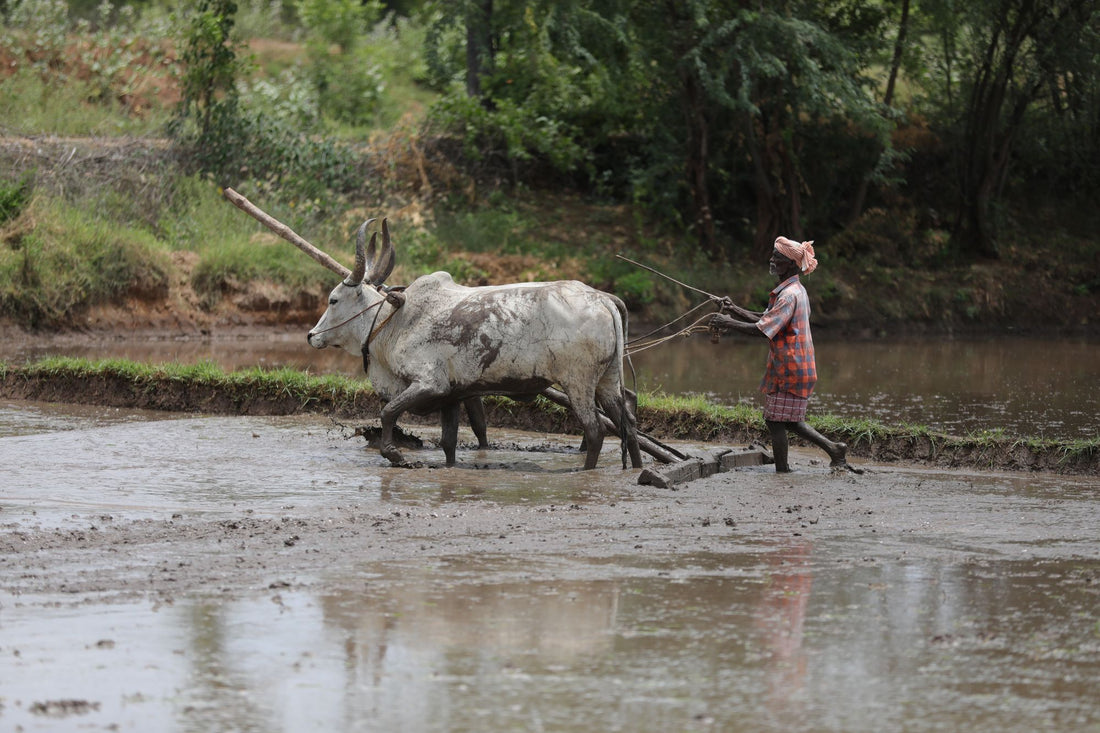In the heartland of India, long before the British arrived on our shores, a vibrant tapestry of agricultural wisdom and a rich farming lifestyle adorned our landscapes. Our ancestors were stewards of the land, tilling the soil with care and reverence, and their knowledge of sustainable agricultural systems was a testament to their deep connection with nature.
In tune with nature
The farmers' lifestyle was one of harmony with the cycles of the earth. Each season brought new rituals and celebrations as they sowed the seeds of hope and reaped the fruits of their labor. Agriculture was not merely a livelihood; it was a way of life, intricately woven into the social and cultural fabric of our communities.
In the enlightening pages of "An Agricultural Testament," we find echoes of the wisdom that guided our forefathers in their agricultural practices. The book reminds us of the importance of maintaining the delicate balance between man and nature. One excerpt beautifully illustrates the essence of the Indian agricultural system before the British rule:
In the enlightening pages of "An Agricultural Testament," we find echoes of the wisdom that guided our forefathers in their agricultural practices. The book reminds us of the importance of maintaining the delicate balance between man and nature. One excerpt beautifully illustrates the essence of the Indian agricultural system before the British rule:
"The agricultural systems of India are based upon the principles of mutual interdependence and communal effort. Farmers worked together, sharing knowledge and resources, creating a harmonious bond that sustained both the land and the community. The land was not a mere commodity to be exploited, but a living entity to be nurtured with love and respect."
This mutual interdependence extended beyond the human realm, as farmers understood the significance of livestock in their agricultural ecosystem. Cattle were not just beasts of burden; they were revered partners in plowing the fields and sources of organic manure for enriching the soil.
Crop Rotation
Moreover, crop rotation and mixed cropping were common practices that maintained soil fertility and ensured sustainable yields. These ancient practices were grounded in centuries of experience and wisdom, passed down through generations as precious heirlooms.
Diversity
India's agricultural landscape was adorned with a vast diversity of indigenous seeds, each adapted to specific local conditions. The preservation of this seed diversity was crucial for resilience against pests, diseases, and changing climatic patterns. Farmers were the guardians of this invaluable heritage, cherishing the seeds as a precious gift from the earth.
Collective Spirit
But perhaps the most remarkable aspect of the farmers' lifestyle was their deep sense of community. Villages and farming communities worked hand in hand, sharing tasks, resources, and knowledge. The collective spirit was a lifeline during challenging times, fostering a sense of belonging and support.
As we read these tales of wisdom, we are reminded of the potential that lies within us to reclaim this heritage. The echoes of the past beckon us to embrace sustainable agricultural practices and build a future where farmers can thrive, and our lands can flourish.
Let us celebrate the legacy of our farmers and their lifestyle before the British rule, and strive to honor their wisdom by nurturing our land and communities. As we embark on this journey of rediscovery, let us remember that the power to sow the seeds of change lies within each of us. Together, we can weave a new chapter in the story of Indian agriculture - one that preserves the ancient wisdom while embracing innovation, and one that sustains our farmers and the very soul of our nation. Agreed?

